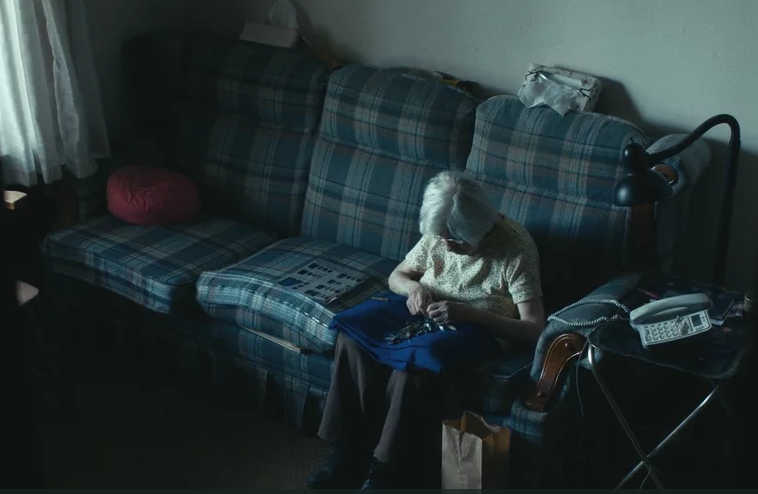/inform/
Mary is 98 years old. On weekdays, she spends her time at the local seniors’centre; playing air hockey, Wii bowling, dancing, and occasionally joining her friends in a drum circle. On weekends, she sits alone in her house and shreds junk mail into tiny pieces with her hands. Then, she uses scissors to cut them into even smaller pieces, before throwing them in the trash. “I have to do something,” she says, “otherwise, I’d go nuts”
Mary is the subject of evocative short documentary Junk Mail, which chronicles her daily life as a senior citizen in Pennsylvania. Although the subject of the film is beyond our borders, it prompts us to take a long look in our own backyard.
Australians are living longer than ever before. People over 65 made up almost 15% of Australia’s population in 2010, and that number is growing rapidly. This growing number causes issues—availability of aged care facilities, changes to the pension system, accessibility of public transport—all of which can only be addressed through legislature or government initiatives. What cannot be legislated, however, is the individual sense of social inclusion and validity that is vital for mentally healthy senior citizens.
Social isolation and loneliness are heavily influenced by a sense of connectedness within the wider community, and risk factors such as widowhood, childlessness, living alone and deteriorating health are exacerbated in rural and remote communities, where support services and resources are scarcer than in major cities. In many ways, Mary can be counted among the fortunate. Her home city of Philadelphia is the fifth most populated city in the United States, and the capital city of Pennsylvania. She has access to a seniors’ centre that allows her to remains active, social and involved five days a week. In contrast, elderly citizens living in rural Australia can suffer heart attacks and only be discovered weeks later by family members busy with their own lives. In some cases, senior citizens are abused by children or neighbours and can feel they have nowhere to turn. Older people disengage from a society that doesn’t seem to value them, simply because they are old in a society that only seems to value youth.
Asked why she thinks it is so important, the centre’s director, Debbie Mertz, summarises the issue in a few words: “Because they’re still alive.” Having fun doesn’t stop at a certain age. The desire for music and games and human company doesn’t dull. “I hope that if they go home, and they don’t come back the next day because…they’re no longer here, their last day was fun,” she says.
Australia’s elderly may be forgotten, but they are not gone. “They’re no different than when they were younger,” Mertz agrees. They are not furniture, depreciating in value with the years. They have spent a lifetime collecting skills and stories. They have different taste in food and music, fail-safe dance moves, a favourite colour.
You can watch the full 10-minute film here. But first, call your grandparents.
---
1. Australian Bureau of Statistics. (2012). Population by Age and Sex, Australian States and Territories, Jun 2010. Retrieved from http://www.abs.gov.au/ausstats/abs@.nsf/mf/3201.0
2. Stanley, M., Moyle, W., Ballantyne, A., Jaworski, K., Coris, M., Oxlade, D. … Young, B. (2010) Nowadays you don’t even see your neighbours: loneliness in the everyday lives of older Australians. Health and Social Care in the Community, 18(4), 407-414. doi: 10.1111/j.1365-2524.2010.00923.x
3. Duncan, B. & Grenade, L. (2008). Social isolation and loneliness among older people: issues and future challenges in community and residential settings. Australian Health Review, 32(3), 468-478. doi: 10.1071/AH080468

